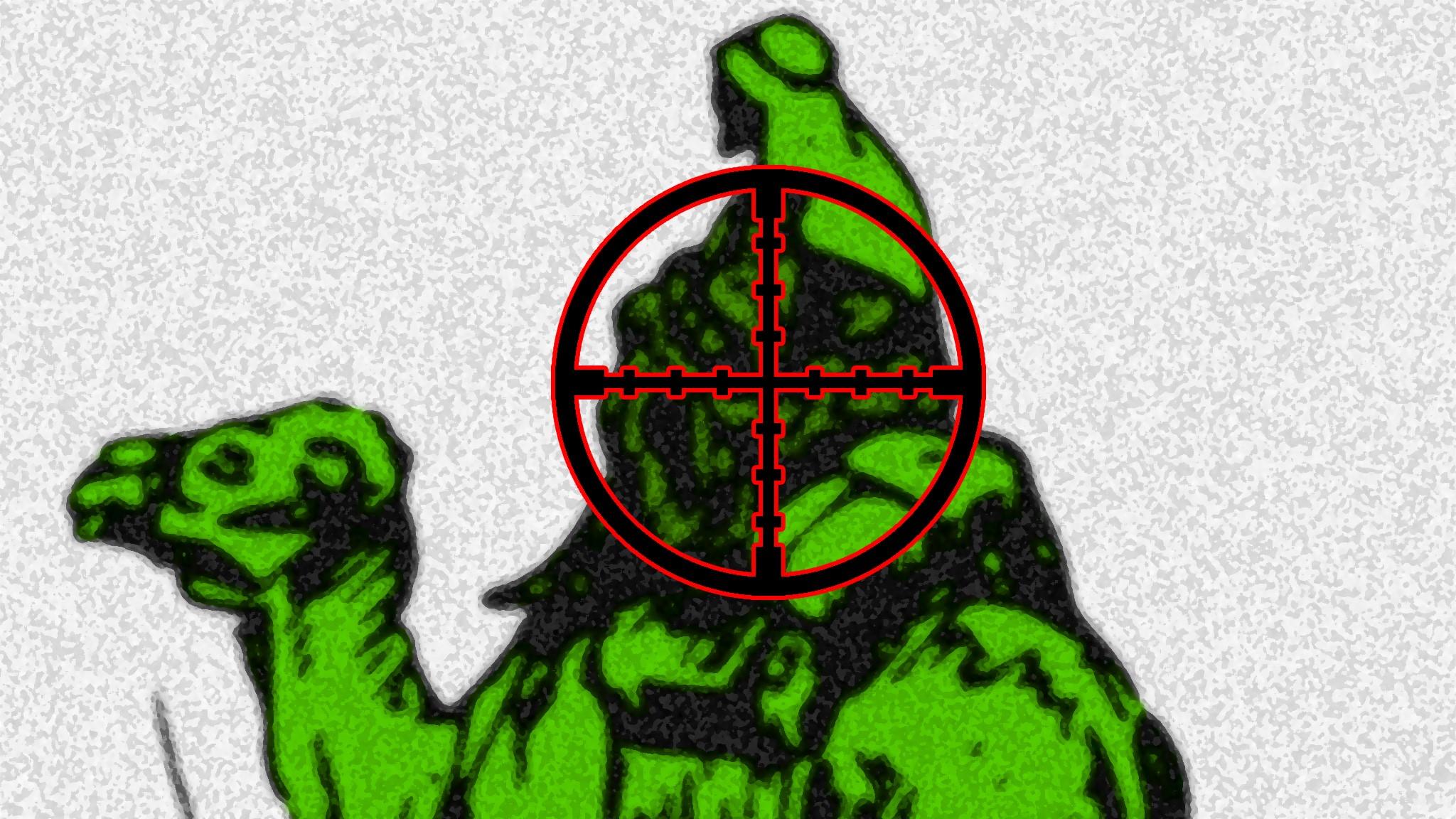Dark net drugs adverts 'double in less than a year'
- Published
Supervisor Christian Crawford shows Angus Crawford around the postal facility in Los Angeles where US Customs try to halt the flow of illegal drugs
The number of listings offering illegal drugs for sale on the "dark net" appears to have more than doubled in less than a year, BBC News has learned.
The US Federal Bureau of Investigation (FBI) closed down the original online illegal drug market, Silk Road, in 2013.
But new figures suggest the trade has actually increased since then.
And other research indicates one in four British drug users has accessed hidden websites.
'Big problem'
In October 2013, there were 18,174 drugs listings across four main markets, according to the internet safety organisation Digital Citizens Alliance, based in the US.
A recent trawl of the dark net by BBC News revealed there were now 43,175 listings across 23 markets.
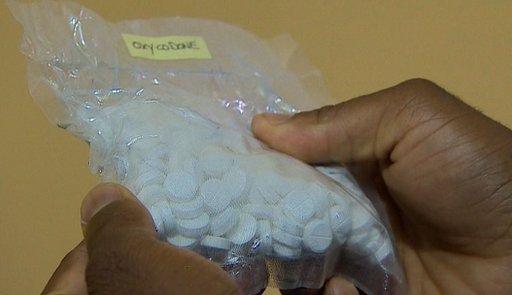
The strong opioid Oxycodone is one of the drugs illegally sold online
In this context, the term "dark net" refers to parts of the internet that cannot be reached easily unless specialised software is used.
Its content is hidden from conventional search engines such as Google and Bing. Commonly used apps such as Instagram, WhatsApp and Evernote - whose content does not show up in search results either - are not covered by the term.
Britain's National Crime Agency recognises the drug trade on the dark net is a threat.
"It's a big problem," says Caroline Young, deputy director of the NCA's Organised Crime Command.
"In our threat assessment we have cocaine and heroin as a high priority, and because it's cyber-enabled that makes it even more of a high priority."
However, she said the figures might be misleading.
"The numbers of vendors in the UK has reduced by 40%, each vendor may have more than one listing," she says.
One internet safety campaigner was concerned by the findings.
"We still think the internet can be a wonderful tool for consumers and businesses, but we do worry good people and companies get caught up in the web spun by criminals and rogue operators," said Adam Benson, deputy executive director of Digital Citizens Alliance.
"That will slowly erode the trust and confidence we have in the internet."

The dealer's view
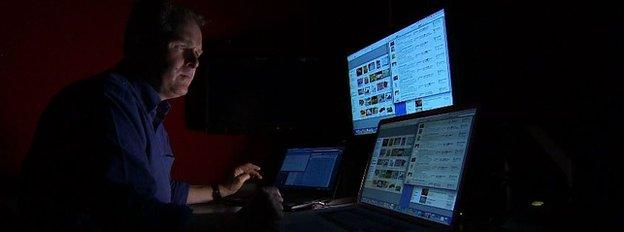
One anonymous drugs dealer said he thought the dark net market was growing "exponentially"
After months of negotiations, a dark net drug dealer based outside the UK agreed to answer my questions.
He would only do it anonymously and using encrypted messages.
"To us the dark net is all about anonymity and freedom," he said.
I put it to him that he was still selling dangerous substances and supporting organised crime.
"A street dealer could sell you anything without you knowing what it is exactly," he replied.
"Because of the strong community on the dark net, this almost never happens. And when it happens, the vendor in question will lose all of his clients."
He added that the online drugs trade showed no signs of reducing.
"I've seen the dark net market grow almost exponentially."

Undesired publicity
Californian Ross Ulbricht was arrested last year and is awaiting trial charged with being the administrator of the original Silk Road site, which he denies.
Customers and dealers used encrypted email and paid using the virtual currency Bitcoin, which can be hard to track.
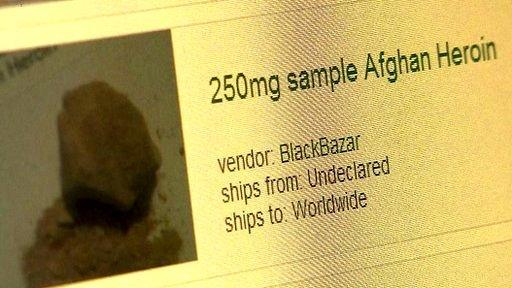
Drug dealers offer to ship illegal substances across the globe
The FBI seized the site and confiscated all funds.
But some observers say that has only increased interest in the markets.
Deepdotweb.com is a website that observes developments on the hidden web.
A representative from the site said: "The Silk Road bust was the best advertising the dark net markets could have hoped for."
Anonymous network
One of the most popular access methods for the dark net is the TorBrowser.
It allows people to use Tor, an "onion-routing" system that makes a PC's net address untraceable.
It bounces encrypted data through several randomly selected computer servers on a volunteer network - before it reaches its destination.
There are also many hidden sites on the network ending in the dot-onion suffix, including drugs markets.
Tor was first created by the US military and is now also used by pro-democracy campaigners, whistleblowers and journalists operating under repressive regimes.
But criminals too are taking advantage of its anonymity.
Cocaine clicks
One buyer agreed to talk to me, but only if his identity was hidden.
Views from both sides of the internet drugs market
Sam, not his real name, admitted he used to buy drugs from a dealer in London.
"I bought cannabis, around every two to three weeks from a street vendor, it was pretty terrifying," he said.
He then showed me the cannabis he bought online - it was delivered to his house by first-class post.
"I don't have to reveal my identity at all, it's completely anonymous, no-one's going to find out who I am, I just feel safe using it."
And there is evidence he is part of a growing number of people going online to buy illegal drugs.
The Global Drug Survey has taken place each year since 1999.
For the 2014 survey, more than 79,000 people worldwide were questioned about their drug habits.
Some 25% of British respondents said they had accessed dark net drugs markets.
The survey's founder, Adam Winstock, said it was just like the growth of any e-commerce.
"Better quality, better range, more convenient," he said, "and certainly in the case of drugs, avoiding having to come into contact with dealers."
Targeting dealers
Those who observe the dark net believe sales will continue to grow.
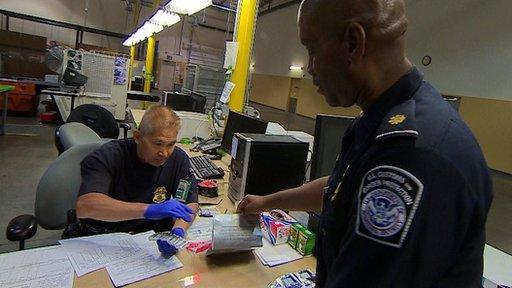
US customs officers check thousands of parcels and letters a year to try to limit trade
Deepdotweb.com expects methods may change.
"We will see movements toward decentralised markets as they have better potential for being safer, are impossible to shut down, and can provide better solutions for handling transactions," said its editor, who asked to remain anonymous.
Britain's National Crime Agency says it will do all it can to disrupt the trade.
"We will use all and every tool and technique we possibly can," said Caroline Young.
"Whether they are dealers and buyers online or on the street - they are exactly the same.
"They are dealing in illegal drugs and they are dealing in misery."
- Published30 July 2014
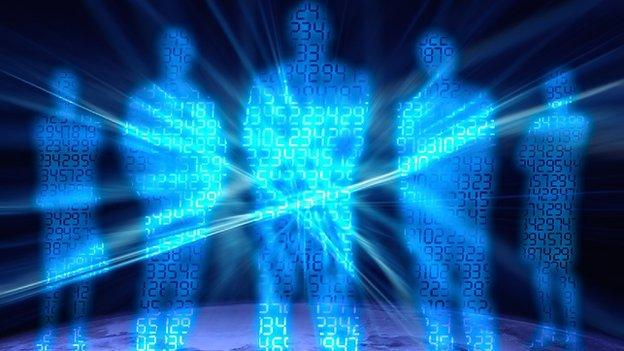
- Published19 June 2014
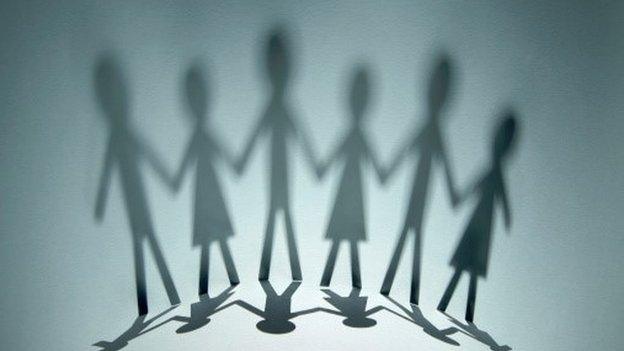
- Published18 June 2014
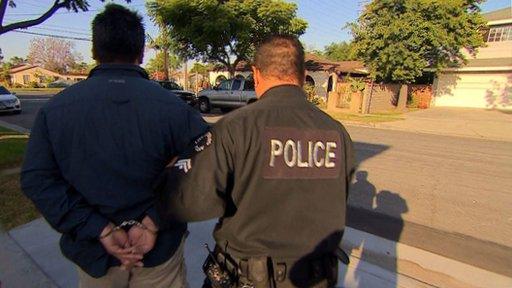
- Published11 October 2013
